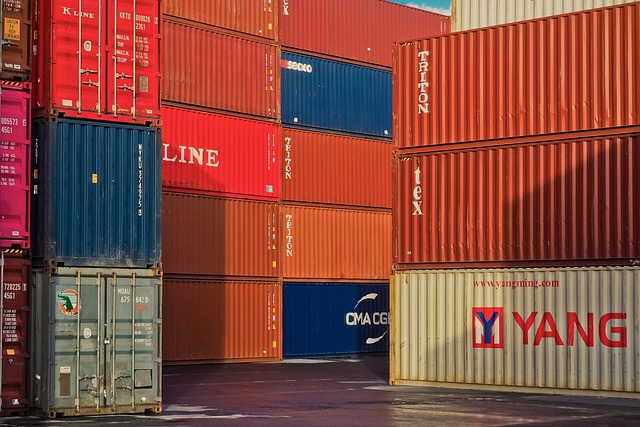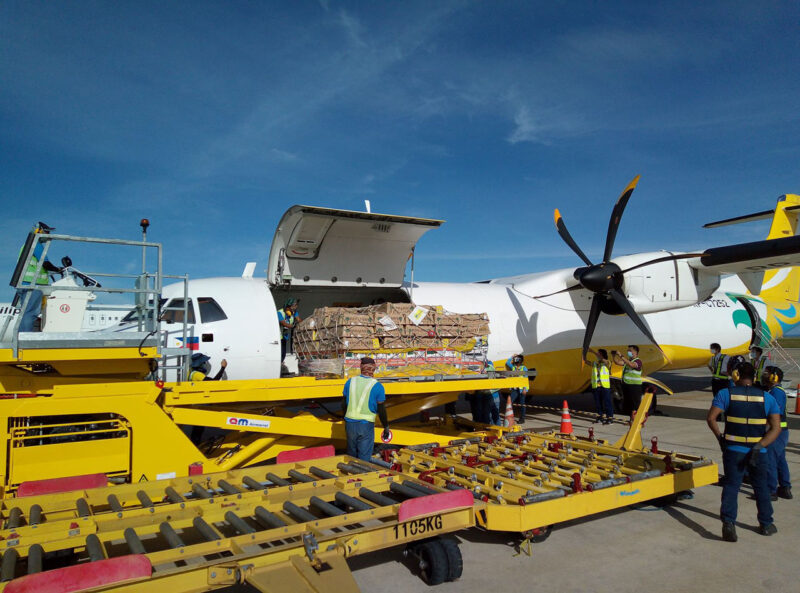-
The government aims to implement the first phases of the pre-border technical verification and cross-border electronic invoicing system of imported commodities by January 2025
-
The first phase of the PTV will be implemented on the first week of January, the second phase on the last week of January, and the third in March
-
On the other hand, the first phase of the CEI system will be adopted in the first week of January and the second, 90 days after issuance of a Bureau of Customs order
-
A draft joint administrative order is eyed for finalization by the first or second week of September and signed by the second week of the same month
The government aims to implement the first phases of the pre-border technical verification (PTV) and cross-border electronic invoicing (CEI) system of imported commodities by January 2025.
Based on the moving timeline presented during the first public consultation on the draft joint administrative order (JAO) that will implement Administrative Order (AO) No. 23, the first phase of the PTV, which covers agricultural goods, is targeted for implementation in the first week of January, while the second phase covering non-agricultural products with health and safety issues will be implemented on the last week of January. The third and last phase covering other goods susceptible to misdeclaration to avoid duties and taxes will be implemented in March 2025.
For the CEI, the first phase covering those under the Bureau of Customs (BOC) Bulk and Breakbulk Cargo Enhancement Program will be implemented in the first week of January. The second phase covering all other imports will be 90 days after the publication of the BOC customs order implementing the CEI.
The PTV and CEI system should be fully implemented within two years from the effectivity of AO 23, which was signed last May and directs BOC to implement the PTV and CEI system with the aim of expediting the inspection of all imported goods entering the country and further strengthen national security, safeguard consumers’ rights, and protect the environment against sub-standard and dangerous imported goods.
READ: Marcos orders pre-border verification, e-invoicing for all imports
PTV refers to testing and inspection of all commodities by the accredited testing, inspection, and certification companies (ATICC) prior to exporting to the Philippines for purposes of verifying in advance the declared specifications, description, weight, volume, and country of origin, and ensuring that these commodities are safe and of good quality, in accordance with the World Trade Organization Facilitation Agreement, and existing laws, rules and regulations.
ATICCs are qualified testing, inspection, and certification (TIC) companies that possess legal, financial, and technical capabilities to implement both the PTV and CEI system as a digital and integrated package.
The CEI system, meanwhile, is used by a verified and registered foreign exporter to create export invoice on a single electronic platform controlled by the Philippine government.
AO 23 will be implemented by a proposed JAO, which first public consultation was conducted on August 19 and the second to be held on August 30.
The draft JAO will also provide the roles and responsibilities of the Committee on Pre-border Technical Verification and Cross-border Electronic Invoicing (CPTVCEI), the member agencies, importers, exporters, and ATICCs.
Based on the moving timeline, the target is to finalize the draft JAO by the first or second week of September and signed by the second week of the same month. The BOC customs administrative orders (CAO) signaling the implementation of the PTV and CEI system, meanwhile, will be published in the last week of October. The preparation and issuance of the BOC memorandum order that will implement the CAOs will be on the last week of October until the last week of November.
Under the draft JAO, all containerized agricultural products, non-agricultural products with health and safety issues, and other goods susceptible to misdeclaration to avoid duties and taxes as listed in the appendices of the draft JAO, are required to undergo PTV.
Goods that are not subject to PTV include the following:
- Goods already covered under the BOC Bulk and Break-Bulk Cargo Clearance Enhancement Program
- Goods shipped in less-than-container-load (LCL)
- Balikbayan boxes and personal and household effects of returning residents
- Goods where the consignee is the Philippine government or any of its corporations, agencies or instrumentalities but not including goods imported on behalf of these instrumentalities by private importers
- Explosives, ammunition, arms and equipment and other strategic materials certified as such by the Department of National Defense
- Imports by export processing zone enterprises duly registered with export processing zone enterprises
- Importations and donations made by foreign governments or international organizations to foundations, charities and recognized humanitarian organizations
In response to a query during the public consultation, BOC Assessment and Operations Coordinating Group deputy commissioner Vener Baquiran clarified that since the PTV only covers containerized shipments, air shipments are exempted.
All imported goods, whether by air or sea, meanwhile, will be subject to the CEI. It also covers those under the Bulk and Breakbulk Cargo Enhancement Program since they are not yet subject to CEI.
Goods that have undergone PTV conducted by an ATICC and have been issued a Certificate of Conformity will be qualified for advance clearance procedure, subject to the following conditions:
- The importer has filed an import entry and paid the proper duties, taxes, and other fees on such importation
- The information under the import entry, bill of lading, commercial invoice issued by the exporter, and Certificate of Conformity issued by the PTV ATICC match and refer to the same goods
- The e-invoice from the exporter contains a full statement of the costs of the shipment for the purpose of calculating the duties and taxes
Upon arrival of qualified importation, the importer may immediately cause the withdrawal of the shipment from the port upon presentation of proof of payment of duties and taxes, and any other documents required by Philippine laws, rules and regulations.
Goods without an e-invoice, have not undergone PTV, when required, and those that have been issued a Discrepancy Report due to discrepancies in the e-invoice will be considered high-risk subject to 100% physical inspection by the ATICC, concerned regulatory agency, and BOC, continuous underguarding until accomplishment and submission of a border technical verification report, other applicable control, and payment of duties, taxes, and penalties due on the shipment, including administrative fines.
Goods that have health and environmental issues will be exported back to the country of origin at the expense of the importer.
Failure to subject the shipment to PTV or CEI will be subject to the following penalties:
- First offense – 30% of the dutiable value of the goods
- Second offense – 50% of the dutiable value of the goods
- Third offense – revocation of accreditation of the importer
PTV ATICCs may impose a fixed fee for each physical verification of goods in the countries of origin.
CEI ATICCs, meanwhile, may impose registration fee, and fee for each invoice created by exporters on the cross-border e-invoicing portal.
BOC will collect from the ATICC a service fee for monitoring and supervision of the PTV and CEI system equivalent to 10% of the fees collected.
All exporters of goods to the Philippines are required to apply for registration in the CEI System annually.
Based on the moving timeline, registration of exporters will start in the first week of December.
For goods requiring PTV, exporters should engage the service of a PTV ATICC operating in the country of origin prior to shipment.
Asked if implementation of the PTV will be delayed if there are no ATICC present in the exporting country, Baquiran said “definitely.” He noted, however, that based on their study, “PTVs are all over the world.”
“It’s not only the Philippines that [is] requiring pre-shipment inspections…There are a lot of PTVs abroad,” Baquiran added, noting that there are currently nine TICs providing inspection for bulk and breakbulk shipments.
Accreditation of ATICCs for the CEI system will be from the second week of October to the second week of November and for TIC companies for PTV will be from the second week of October.
Selection of TIC companies both for PTV and CEI system will be from the third week of October to the third week of November.
Accreditation and signing of contracts with the TIC companies will be from the third week to the fourth week of November. – Roumina Pablo









